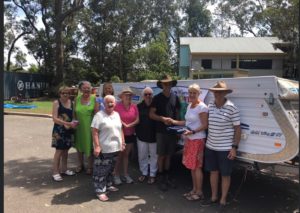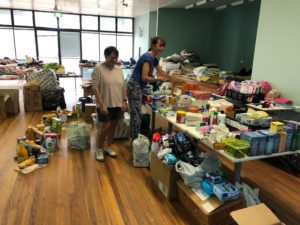This is an excerpt from the Australian Bushfire and Climate Plan. Read the full plan here.
The New Year’s Eve fires on the New South Wales South Coast tore through dozens of towns, including the community of Lake Conjola, where more than 130 homes were destroyed, and three people died.
Lake Conjola’s recovery has been community-led, and to a large extent, community-funded. The Conjola Community Recovery Association was set up after the fires and initially helmed by ELCA’s Peter Dunn. Cut off from outside help by closed roads, power losses and problems with telecommunications, the community banded together to pick up the pieces in the aftermath of the disaster. Immediate priorities included restoring essential services like power and connectivity; arranging mental health support for traumatised locals; and beginning the clean-up process. It has been challenging to access government funding for rebuilding, but the Conjola community has raised about $350,000 to fund its own recovery.

Conjola Community Recovery Association meeting
The association’s next priorities include improving the area’s infrastructure and amenities, including building bicycle paths to connect villages in the area to one another; working with Traditional Owners to restore the Lake Conjola ecosystem which has been damaged by the fires; organising temporary housing in town for locals who lost their homes; and for the first time in the town’s history, developing evacuation plans to prepare for worsening bushfires in the future.

Caravan handover for a local farmer who lost his home
Since the Black Summer, the Conjola community has also had to overcome severe flooding and the COVID-19 pandemic. But the connections forged in the aftermath of the fires have brought the community closer together, ensuring that even the most vulnerable members are looked after during the stressful and isolating lockdown period. With recovery experts from Government and non-governmental organisations commencing work in the town, the Conjola Community Recovery Effort is starting to transition from a volunteer-led recovery model to a professional model. The community has come out of an incredibly difficult seven months more resilient and connected than ever. The full recovery process will likely take up to three years. In that time, Conjola locals and community leaders alike continue to advocate for strong climate action and a swift transition to a net zero emissions economy.

Conjola Community Recovery Association meeting
This case study originally appeared in the Australian Bushfire and Climate Plan. Read it here.